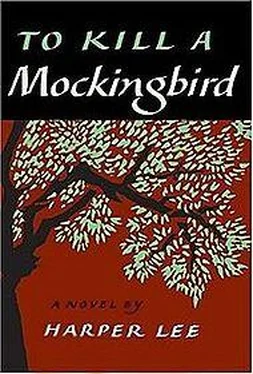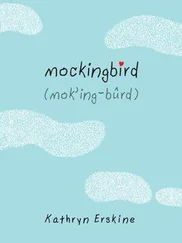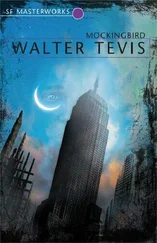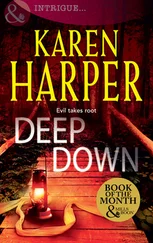Lee Harper - To Kill a Mockingbird
Здесь есть возможность читать онлайн «Lee Harper - To Kill a Mockingbird» весь текст электронной книги совершенно бесплатно (целиком полную версию без сокращений). В некоторых случаях можно слушать аудио, скачать через торрент в формате fb2 и присутствует краткое содержание. Жанр: Современная проза, на английском языке. Описание произведения, (предисловие) а так же отзывы посетителей доступны на портале библиотеки ЛибКат.
- Название:To Kill a Mockingbird
- Автор:
- Жанр:
- Год:неизвестен
- ISBN:нет данных
- Рейтинг книги:3 / 5. Голосов: 1
-
Избранное:Добавить в избранное
- Отзывы:
-
Ваша оценка:
- 60
- 1
- 2
- 3
- 4
- 5
To Kill a Mockingbird: краткое содержание, описание и аннотация
Предлагаем к чтению аннотацию, описание, краткое содержание или предисловие (зависит от того, что написал сам автор книги «To Kill a Mockingbird»). Если вы не нашли необходимую информацию о книге — напишите в комментариях, мы постараемся отыскать её.
To Kill a Mockingbird — читать онлайн бесплатно полную книгу (весь текст) целиком
Ниже представлен текст книги, разбитый по страницам. Система сохранения места последней прочитанной страницы, позволяет с удобством читать онлайн бесплатно книгу «To Kill a Mockingbird», без необходимости каждый раз заново искать на чём Вы остановились. Поставьте закладку, и сможете в любой момент перейти на страницу, на которой закончили чтение.
Интервал:
Закладка:
That was the summer Dill came to us.
Early one morning as we were beginning our day’s play in the back yard, Jem and I heard something next door in Miss Rachel Haverford’s collard patch. We went to the wire fence to see if there was a puppy — Miss Rachel’s rat terrier was expecting — instead we found someone sitting looking at us. Sitting down, he wasn’t much higher than the collards. We stared at him until he spoke:
“Hey.”
“Hey yourself,” said Jem pleasantly.
“I’m Charles Baker Harris,” he said. “I can read.”
“So what?” I said.
“I just thought you’d like to know I can read. You got anything needs readin’ I can do it....”
“How old are you,” asked Jem, “four-and-a-half?”
“Goin’ on seven.”
“Shoot no wonder, then,” said Jem, jerking his thumb at me. “Scout yonder’s been readin’ ever since she was born, and she ain’t even started to school yet. You look right puny for goin’ on seven.”
“I’m little but I’m old,” he said.
Jem brushed his hair back to get a better look. “Why don’t you come over, Charles Baker Harris?” he said. “Lord, what a name.”
“’s not any funnier’n yours. Aunt Rachel says your name’s Jeremy Atticus Finch.”
Jem scowled. “I’m big enough to fit mine,” he said. “Your name’s longer’n you are. Bet it’s a foot longer.”
“Folks call me Dill,” said Dill, struggling under the fence.
“Do better if you go over it instead of under it,” I said. “Where’d you come from?”
Dill was from Meridian, Mississippi, was spending the summer with his aunt, Miss Rachel, and would be spending every summer in Maycomb from now on. His family was from Maycomb County originally, his mother worked for a photographer in Meridian, had entered his picture in a Beautiful Child contest and won five dollars. She gave the money to Dill, who went to the picture show twenty times on it.
“Don’t have any picture shows here, except Jesus ones in the courthouse sometimes,” said Jem. “Ever see anything good?”
Dill had seen Dracula, a revelation that moved Jem to eye him with the beginning of respect. “Tell it to us,” he said.
Dill was a curiosity. He wore blue linen shorts that buttoned to his shirt, his hair was snow white and stuck to his head like duckfluff; he was a year my senior but I towered over him. As he told us the old tale his blue eyes would lighten and darken; his laugh was sudden and happy; he habitually pulled at a cowlick in the center of his forehead.
When Dill reduced Dracula to dust, and Jem said the show sounded better than the book, I asked Dill where his father was: “You ain’t said anything about him.”
“I haven’t got one.”
“Is he dead?”
“No...”
“Then if he’s not dead you’ve got one, haven’t you?”
Dill blushed and Jem told me to hush, a sure sign that Dill had been studied and found acceptable. Thereafter the summer passed in routine contentment. Routine contentment was: improving our treehouse that rested between giant twin chinaberry trees in the back yard, fussing, running through our list of dramas based on the works of Oliver Optic, Victor Appleton, and Edgar Rice Burroughs. In this matter we were lucky to have Dill. He played the character parts formerly thrust upon me — the ape in Tarzan, Mr. Crabtree in The Rover Boys, Mr. Damon in Tom Swift. Thus we came to know Dill as a pocket Merlin, whose head teemed with eccentric plans, strange longings, and quaint fancies.
But by the end of August our repertoire was vapid from countless reproductions, and it was then that Dill gave us the idea of making Boo Radley come out.
The Radley Place fascinated Dill. In spite of our warnings and explanations it drew him as the moon draws water, but drew him no nearer than the light-pole on the corner, a safe distance from the Radley gate. There he would stand, his arm around the fat pole, staring and wondering.
The Radley Place jutted into a sharp curve beyond our house. Walking south, one faced its porch; the sidewalk turned and ran beside the lot. The house was low, was once white with a deep front porch and green shutters, but had long ago darkened to the color of the slate-gray yard around it. Rain-rotted shingles drooped over the eaves of the veranda; oak trees kept the sun away. The remains of a picket drunkenly guarded the front yard — a “swept” yard that was never swept-where johnson grass and rabbit-tobacco grew in abundance.
Inside the house lived a malevolent phantom. People said he existed, but Jem and I had never seen him. People said he went out at night when the moon was down, and peeped in windows. When people’s azaleas froze in a cold snap, it was because he had breathed on them. Any stealthy small crimes committed in Maycomb were his work. Once the town was terrorized by a series of morbid nocturnal events: people’s chickens and household pets were found mutilated; although the culprit was Crazy Addie, who eventually drowned himself in Barker’s Eddy, people still looked at the Radley Place, unwilling to discard their initial suspicions. A Negro would not pass the Radley Place at night, he would cut across to the sidewalk opposite and whistle as he walked. The Maycomb school grounds adjoined the back of the Radley lot; from the Radley chickenyard tall pecan trees shook their fruit into the schoolyard, but the nuts lay untouched by the children: Radley pecans would kill you. A baseball hit into the Radley yard was a lost ball and no questions asked.
The misery of that house began many years before Jem and I were born. The Radleys, welcome anywhere in town, kept to themselves, a predilection unforgivable in Maycomb. They did not go to church, Maycomb’s principal recreation, but worshiped at home; Mrs. Radley seldom if ever crossed the street for a mid-morning coffee break with her neighbors, and certainly never joined a missionary circle. Mr. Radley walked to town at eleven-thirty every morning and came back promptly at twelve, sometimes carrying a brown paper bag that the neighborhood assumed contained the family groceries. I never knew how old Mr. Radley made his living — Jem said he “bought cotton,” a polite term for doing nothing — but Mr. Radley and his wife had lived there with their two sons as long as anybody could remember.
The shutters and doors of the Radley house were closed on Sundays, another thing alien to Maycomb’s ways: closed doors meant illness and cold weather only. Of all days Sunday was the day for formal afternoon visiting: ladies wore corsets, men wore coats, children wore shoes. But to climb the Radley front steps and call, “He-y,” of a Sunday afternoon was something their neighbors never did. The Radley house had no screen doors. I once asked Atticus if it ever had any; Atticus said yes, but before I was born.
According to neighborhood legend, when the younger Radley boy was in his teens he became acquainted with some of the Cunninghams from Old Sarum, an enormous and confusing tribe domiciled in the northern part of the county, and they formed the nearest thing to a gang ever seen in Maycomb. They did little, but enough to be discussed by the town and publicly warned from three pulpits: they hung around the barbershop; they rode the bus to Abbottsville on Sundays and went to the picture show; they attended dances at the county’s riverside gambling hell, the Dew-Drop Inn & Fishing Camp; they experimented with stumphole whiskey. Nobody in Maycomb had nerve enough to tell Mr. Radley that his boy was in with the wrong crowd.
One night, in an excessive spurt of high spirits, the boys backed around the square in a borrowed flivver, resisted arrest by Maycomb’s ancient beadle, Mr. Conner, and locked him in the courthouse outhouse. The town decided something had to be done; Mr. Conner said he knew who each and every one of them was, and he was bound and determined they wouldn’t get away with it, so the boys came before the probate judge on charges of disorderly conduct, disturbing the peace, assault and battery, and using abusive and profane language in the presence and hearing of a female. The judge asked Mr. Conner why he included the last charge; Mr. Conner said they cussed so loud he was sure every lady in Maycomb heard them. The judge decided to send the boys to the state industrial school, where boys were sometimes sent for no other reason than to provide them with food and decent shelter: it was no prison and it was no disgrace. Mr. Radley thought it was. If the judge released Arthur, Mr. Radley would see to it that Arthur gave no further trouble. Knowing that Mr. Radley’s word was his bond, the judge was glad to do so.
Читать дальшеИнтервал:
Закладка:
Похожие книги на «To Kill a Mockingbird»
Представляем Вашему вниманию похожие книги на «To Kill a Mockingbird» списком для выбора. Мы отобрали схожую по названию и смыслу литературу в надежде предоставить читателям больше вариантов отыскать новые, интересные, ещё непрочитанные произведения.
Обсуждение, отзывы о книге «To Kill a Mockingbird» и просто собственные мнения читателей. Оставьте ваши комментарии, напишите, что Вы думаете о произведении, его смысле или главных героях. Укажите что конкретно понравилось, а что нет, и почему Вы так считаете.












